CSF Attends Global Gathering of Financial Centres for Sustainability in Ireland
The Centre for Sustainable Finance was pleased to be invited to the recent UNDP Financial Centres for Sustainability 2023 AGM in Dublin, Ireland. It was a convening of representatives from 35 of the world’s leading Financial Centres for Sustainability to share priorities and learnings while identifying ways to collaboratively advance sustainable finance world-wide.
There were many insights shared, many of which were relevant to Aotearoa New Zealand as our sustainable finance sector continues to build momentum. The following were some of the strongest themes across the meeting.
Capability:
Capability was the prevalent topic, with many representatives working on programmes to build their countries’ sustainable finance capability to accelerate progress. This included working collaboratively with governments, tertiary institutes and private organisations to develop training and certifications relating to sustainable finance.
The focus on capability recognises the recent emergence of the sustainable finance sector and the inevitable gap in volume of skilled sustainable finance practitioners, as well as the importance of sustainable finance talent to national economic value propositions. Examples can be found in Ireland, where the Government funds up to 30% of the cost of sustainable finance courses, and Singapore where the recently launched Singapore Green Finance Centre has capability as a core strategic focus.
The importance of finance in achieving global climate commitments was also acknowledged. Funding and financing the transition is a crucial part of the puzzle, and developing expertise to tackle this is an essential precursor.
SMEs:
There was also a large focus on small and medium businesses at the meeting, with multiple countries in the room noting SMEs make up more than 90% of their businesses and large parts of their economy. This is true here in Aotearoa New Zealand with SMEs representing 97% of all firms and more than a quarter of our national GDP.
With an increasing level of reporting expected, particularly around climate disclosures, SMEs are increasingly conflicted with the limited resources available. But, it was noted SMEs often pick up innovation more quickly, and enabling them to report and manage relevant data could accelerate the transition. Capital Markets Malaysia recently consulted on a ‘Simplified ESG Disclosure Guide for SMEs’, which is a simplified and synthesised combination of leading global sustainability frameworks. We expect reporting guidelines designed specifically for SMEs to be a growing priority globally, and this is something we will be watching closely for Aotearoa New Zealand’s benefit too.
Nature:
There’s no doubt that biodiversity and nature positive is increasingly seen as the next frontier, and attendees regularly mentioned this. While data in this area has often been a barrier, the recent release of the final recommendations of the Taskforce on Nature-related Financial Disclosures is expected to catalyse the amount of data available in this space. It is now up to the finance sector to build capacity around utilising this information to enable biodiversity financing and finance instruments for natural capital.
Gender:
The meeting also saw 21 members sign a Gender Finance Charter, committing to advancing gender equality in sustainable finance. This commitment includes implementing concrete actions throughout 2024 to mainstream gender considerations within sustainable finance. Ireland’s Minister of State Jennifer Carroll MacNeill said the Gender Finance Charter had the potential to significantly advance gender equality, not just in financial services, but more broadly across the globe.
In addition to these themes, the AGM also served as a reminder of the road ahead for Aotearoa New Zealand, and the increasing urgency with which we need progress.
Many countries talked about taxonomies as if they were a part of the furniture, while we lag behind in the early development stages. Foreign governments are also seeing significant progress by partnering with the private sector to enable them to lead the climate transition – this remains a key opportunity for Aotearoa New Zealand’s future. We must also consider the unequal impacts of climate change across Aotearoa New Zealand are only going to worsen until proactively addressed. These are just some of the opportunities that we need to tackle to ensure a sustainable, equitable and inclusive financial system.
While New Zealand’s sustainable finance sector has matured significantly in recent years, there is still much work to do, with increasing sustainable finance capability and disclosures for SMEs just some examples. The Centre is looking forward to continuing to work with and learn from our global counterparts as we accelerate Aotearoa New Zealand’s transition to a nature positive, net zero economy.

